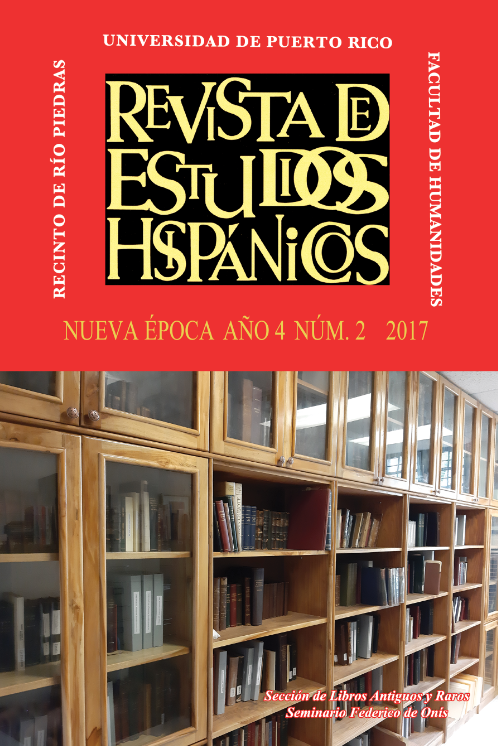Abstract
¿Could the reading of poetry become a transgressive act against the codification and overcodification of life into numbers in our current capitalist modernity and lettered city? This article proposes a 'decolonial reading‘ of the first poem of Trilce by the poet César Vallejo, a poem often regarded as hermetic. We argue that the illegibility of that poem allows us as readers to question the figure of the 'expert‘ in the modern period. We define 'decolonial reading‘ as a reading that reveals the hidden centers of power in our society and that avoids the authority of the expert and the disciplinarization of knowledge imposed by the imperial rationality of the Enlightenment. We will focus on the allusions in the poem to the global market of the guano, which was used as fertilizer during the second half of the 19th century, in particular the Peruvian guano that was imported to the United States. In order to answer the question above, we will first survey the theoretical bibliography on the relation between capitalism, illegibility and the complicity between the figure of the "letrado" and the figure of the expert in the project of modernization. We will conclude that "Trilce 1" allows us to generate "amateur" acts of appropriation and resignification of poetry that confronts the program of alienation of language under capitalism.This work is licensed under a Creative Commons Attribution-NonCommercial 4.0 International License.
Downloads
Download data is not yet available.

